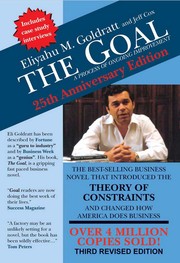A Quarter of a Billion Laptops … #Endof10
Disclaimer: I work at Microsoft on upstream Linux in Azure. These are my personal opinions; I don’t work on Windows.
Why #Endof10 matters
I really appreciate the End Of 10 campaigns. I think there are two great effects coming out of this effort. First they’re raising awareness of Linux and creating an opportunity for conversations that might not normally be held. As a part of this, the campaign is forcing people who promote Linux to sharpen their talking points. Projects are being forced to do the real (and hard!) work of figuring out what problem they’re solving for users and how to convey the value they bring to users. Too many people dismiss marketing without realizing this, at its core, is what marketing is. If you want users, you need good marketing, and I don’t mean cute pictures.
A part of this conversation needs to be the oft ignored or forgotten reality that most computer users just need a web browser. Windows and Linux both have the major browsers and a host of minor ones. Pick one, a good one, make it full screen and hand the laptop over and many users will walk away happy often without caring what the underlying operating system even is. Like it or not, webmail, web apps, streaming media and more have made the browser the most used app on many laptops. Sure you can do more, but most people won’t in their personal life. In business environments the same take over is happening. It’s usually 1-2 apps paired with a web browser that is doing a lot of the heavy lifting. As a corporate IT department I don’t want anything else on the devices.
The second thing big is what this moment reveals about Linux versus Windows. Despite Linux being born of Freedom and arguably the poster child for open source, it, for most users, represents restrictions on choice. This is actually a good thing. Windows, as a platform is widely (mis)understood by users. It is easy to install software that degrades performance, or too struggle to find the best or optimal choice of software in a crowded market, or worse, to become a target of malware and other attacks that focus on the largest consumer installed non-mobile operating system.
Linux, on the other hand, is unfamiliar to most people. That doesn’t make it hard or bad, but it makes it less understood and more work is required to understand it. Open source projects have a hard time maintaining consistency and long-term quality in their usability. It’s too easy for the software change without the UX folks being able to keep up. There are just too few UX folks in open source. This, at its root means that users will have a harder time installing bad software and will often need to seek advice, hopefully from reputable places, about what they should install.
These things matter and we risk undermining ourselves when we let hyperbole creep in.
Hyperbole, it’s what’s for snark-fest

All of that brings me to the thing that bothers me: the ton of hyperbole, like that in the quote above. I deliberately am not crediting that toot because my goal isn’t to name and shame. I want to stay focused on the sentiment. It doesn’t help the cause when we appeal through hyperbole. To be clear, none of this is to say at the end of Windows 10 won’t generate excess replacement cycles or E-waste. These are important concerns, but it is ridiculous to suggest that everything‘s going to the landfill.
Let’s run the numbers
Let’s put some numbers on this. A quarter of a billion is 250 million. According to IDCin quarter 4 of 2024, the latest numbers I could find, ~109 million personal computing devices (all operating systems, aiui) were shipped. However, most personal users are going to replace a laptop with a laptop or move to a tablet, imho. So looking at just laptops and tablets, only ~68 million units were shipped. At these rates you’ll need a solid year of 100% of the new shipments going to replace “landfilled” laptops to enable what our friend above thinks is going to happen. That’s not real. Even in normal periods only a percentage of shipments represent replacements with some being net-new. And honestly, if Windows 10 ending could cause 250 million laptops to ship in one quarter, Windows 10 would have ended a lot sooner. There will definitely be an increase in purchases, but it won’t be 250 million.
But even more important than new shipments is what happens to old machines. This is the used market. You don’t have to look too hard to find excitement in the, mostly Linux, community of folks looking for cheap hardware for projects. They’re waiting for a windfall of cheap laptops to do home automation and more with. They’re licking their lips the way they do when each successive generation of small form factor mini PCs is retired out of offices and retail locations around the world.
And all of this works because we have a rich used computing market. Companies don’t typically trash or shred machines. Many resell them by sending them to specialized organizations that clean them, decommission them, and certify them as being company data free. Those companies then push them out into the used market. The margins are thin, but corporate computing refresh cycles are predictably every 3 to 4 years so there is a sustainable business in this.
What happens next
Which leaves us with the real question: what do Windows 10 users actually do next? Some will buy a new machine and move to Windows 11 because it’ll be familiar, with a few things to like and a few things to grumble about. Some will take the leap to Linux, where they’ll find both a welcoming community and, sometimes, a prickly one. And some, far more than we might expect, will just keep running Windows 10 and expose themselves to unnecessary risks. That last option is clearly the worst. So the opportunity in front of us isn’t about exaggerating numbers or scaring people, it’s about helping them land in a sustainable place. If projects double down on the already sizeable efforts going on to meet users halfway and help advocates with their messaging, Linux can win many converts. Still others may move on to MacOS or even a tablet, and that is OK too. What matters is that we help people land well and don’t leave them behind or at risk because of unsupported software.

